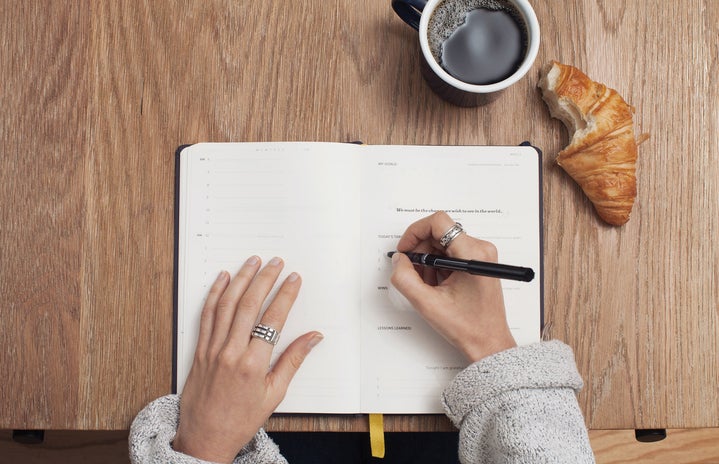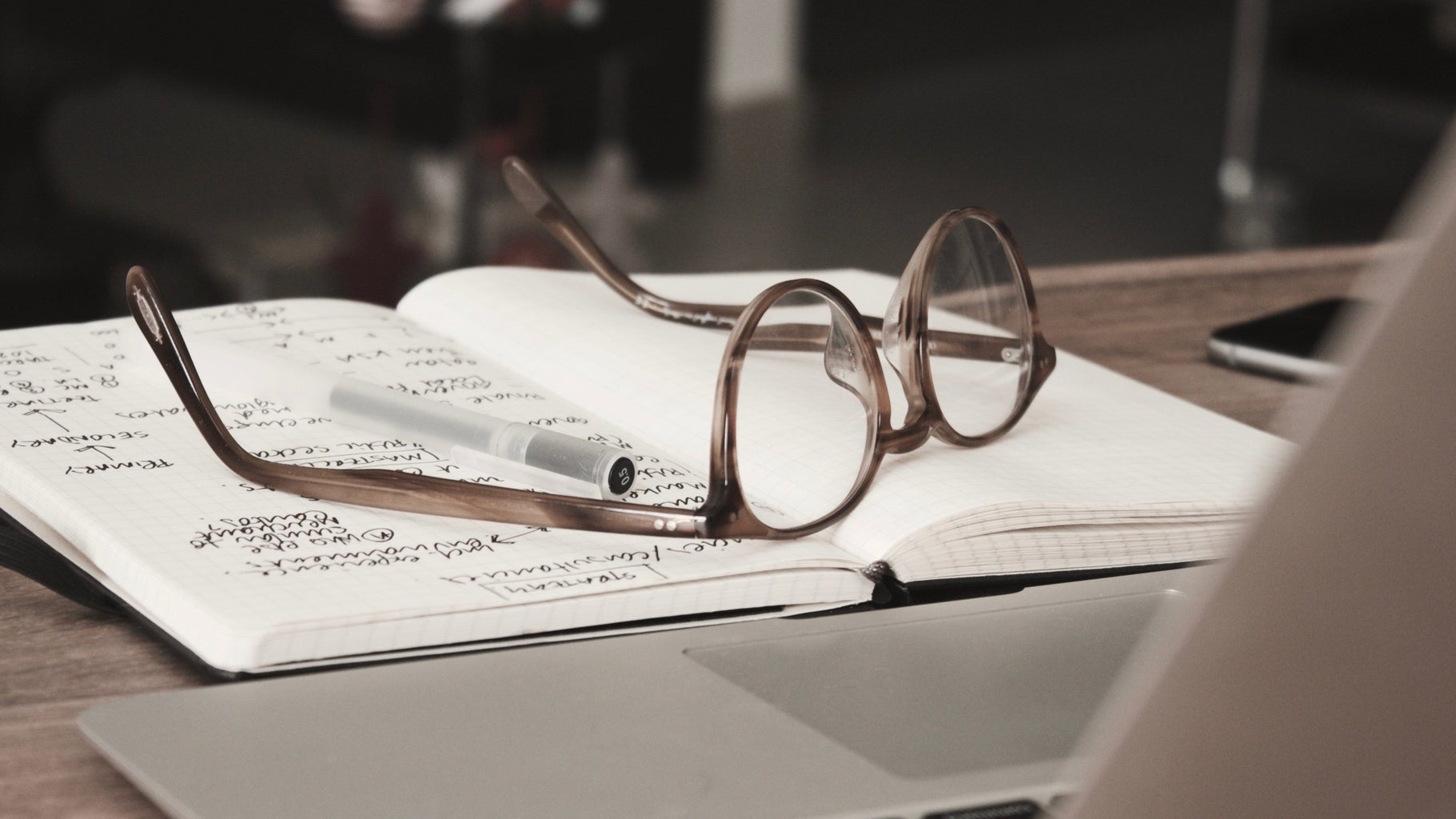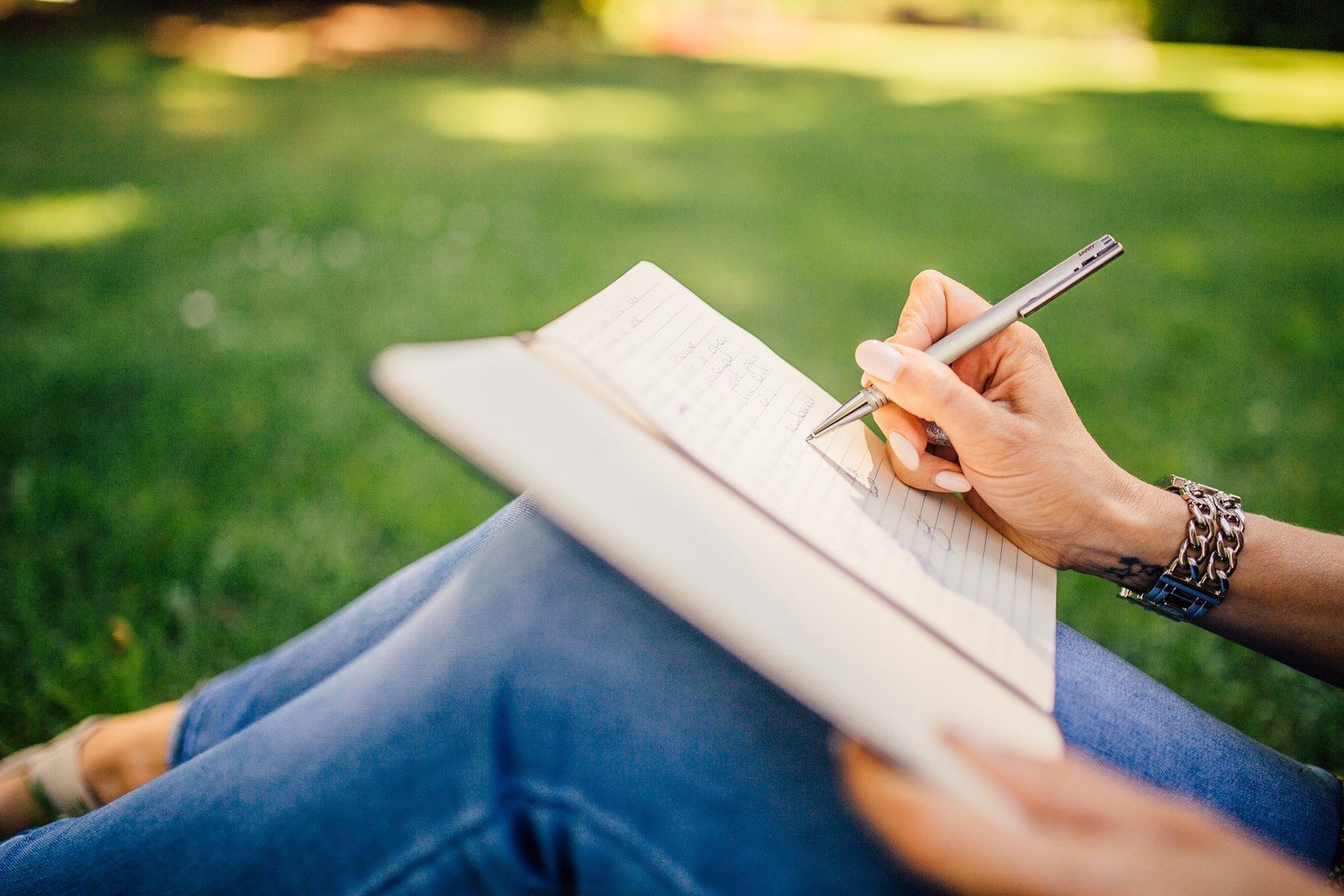The habit of daily journaling was pretty difficult to stick to at first, but with 418 pages, 603 days, and 3 sticker-covered journals behind me, I can safely say that journaling is going to stick with me for a while. I’d journaled on-and-off since I was a kid, filling a quarter of the pages of countless notebooks that would inevitably find their way to a box in the back of my closet. In fact, the first entry in my first completed journal dates October 11, 2018, and I didn’t write the last entry until May 21, 2021. Somewhere in the pages of that hot pink Moleskin notebook, on January 11, 2021 to be precise, something changed.
After years of occasionally journaling, I decided that I was going to try and journal every night before bed. I had read somewhere that setting aside dedicated time every day to write would help the habit stick. I missed a couple of entries those first few weeks, as I still sometimes do. I also discovered that the quality of my writing and thoughts were not as high as they could be, given I was more of an early bird than a night owl. Once I started journaling in the morning, it really felt like I had created a lasting routine. But what had changed this time from all my other attempts at keeping a daily journal? The key to consistency for me was letting go of my own expectations of what a journal should be.
When I was young, a diary used to be for the names of crushes and lists of my best friends and greatest enemies (lists which were interchangeable depending on the mood of 8-year-old Abby). In high school, journaling became an outlet for my darkest thoughts and various frustrations. Writing in my journal was reserved for when I got into a fight with my mom or wasn’t invited to a party. The pattern of only writing when I felt upset continued in my first and second year of university, and the entries had shifted from being about interpersonal troubles to primarily being about mental health struggles. I had come to associate my journal with being a place to dump all my bad thoughts, as if after writing I could simply close the cover on my thoughts and put them neatly on the shelf, tucked away in the pages of an inconspicuous book. Journaling, at that time, was an emotionally charged activity for me since I only ever wrote my most dramatic thoughts and experiences. That’s what I thought a journal was supposed to be, a book that you could write your secrets in without fear of anyone else knowing.
In January 2021, when I decided to journal every day, I quickly realized that I don’t always have something deep and emotional to write. So I started writing about little things. I wrote about what classes I went to, what I had for dinner, or what silly drinking game I played with my housemates the day before. To be honest, even to this day, about half of my entries are pretty boring accounts of the previous day. As I continued this laid-back style of journaling, I found myself becoming more in tune with my thoughts. Slowly, but surely, my entries grew beyond just recounting the story of the day before. Almost all my entries start out that way, but the longer I consistently journaled, the more naturally I seemed to be able to write about my thoughts and emotions in a more neutral way. I was able to get my thoughts out on paper, and once I had them out on those pages, it was like a conversation with myself.
Journaling was no longer about recording my emotional outbursts and shelving the notebook until the next emotional moment, but about being in touch with my feelings every day. Writing down the facts of what I had done the day before, whether it was a boring, exciting, or emotional day, allowed me to see everything with a more grounded perspective. Journaling has become almost like a daily check-in with myself. I don’t hold myself to any expectations when I put my pen on the page, and I just write until I feel like I’m finished. I know that if something is really bothering me, it will come out in an entry without forcing myself to write about it. The most surprising thing I’ve discovered about myself through these daily check-ins is that I’m a pretty happy person.
Journaling was not the only thing that allowed me to be in control of my emotions, but it is a simple act that, when combined with other coping mechanisms, helped me realize that I live a pretty great life and I’m quite happy most of the time. I used to think of myself as a dramatic and emotional person, but journaling helped me realize that having big feelings didn’t make me dramatic or emotional. I realized that I’d just struggled to process these emotions, and I hadn’t really been in touch with myself. The only time I used to connect with myself through journaling was when I was upset, so no wonder I felt like I was always upset. That isn’t to say that all my entries are happy and that journaling has been the ultimate key to being in touch with my inner-self. I still catch myself going on emotional tangents in my journal, which can be a healthy form of catharsis (as long as you’re able to come back to those thoughts and look at them again from a fresh perspective).
Looking back on my journal from before 2021, I only really have entries from bad times. I’ve got so many entries about fights with my parents from high school and petty friendship drama, but I don’t have any entries about prom, graduation, or even the mundane things that made me happy in high school. My entries from my first-year talk about the things I struggled with during the transition to university, but they don’t talk about all the great times I had that year. My past two journals may still detail the hard things, but they tell a more complete story of my life through the past few years. My last journal may have the events of my first heartbreak, but it also contains the beautiful story of my first love. It holds the anxiety I felt about going on exchange, but it also holds the stories of my solo trip to Paris and my crazy 24 hours in Budapest with one of my closest friends. My current journal tells the story of how hard it was to go back to working at camp this summer, but it also tells the story of the endless joy all the new campers I met brought me. I hope to have a stack of journals as tall as I am by the time I’m 50, although that may be a little ambitious of me.
I think the way journaling has changed my life can best be summarized by a quote from the last entry in my second completed journal, dated March 31, 2022, “Okay, now to reminisce and be nostalgic about this journal! 8 months (almost), which is exactly 301 days since June 3, 2021, which was my first entry in this bad boy! While I’ve definitely missed some days, so I don’t quite hit that 300 mark, I’d say this journal is one of the things I’m most proud of that I’ve ever done, one of my biggest accomplishments, proof of my commitment to something; my wellbeing and my past present and future self.”
Daily journaling is a life-changing habit that I hope everyone tries at some point. Even if you’ve tried a million times before, try just once more. Don’t worry about what you write, just write anything. It doesn’t matter if your entries don’t sound like The Unabridged Journals of Sylvia Plath. I love writing and pride myself on being a pretty decent writer, but (as the massive run-on sentence in the above quote from my journal demonstrates) throwing the rules of writing to the wind when journaling might just give you the freedom to say what you really mean. Even if all you ever write in a daily journal is the things you did that day or the meals you ate, you’ll still have a fun time capsule of that time in your life to look back on one day.





